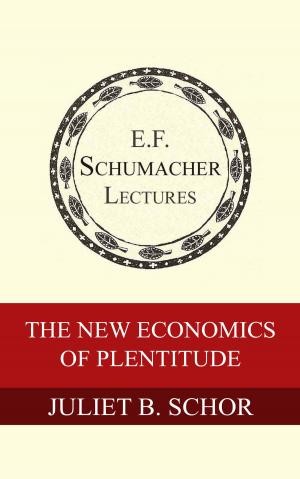Letter to Liberals: Liberalism, Environmentalism, and Economic Growth
Nonfiction, Science & Nature, Nature, Environment, Environmental Conservation & Protection, Business & Finance, Economics| Author: | James Gustave Speth, Hildegarde Hannum | ISBN: | 1230000213669 |
| Publisher: | Schumacher Center for a New Economics | Publication: | September 27, 2010 |
| Imprint: | Language: | English |
| Author: | James Gustave Speth, Hildegarde Hannum |
| ISBN: | 1230000213669 |
| Publisher: | Schumacher Center for a New Economics |
| Publication: | September 27, 2010 |
| Imprint: | |
| Language: | English |
The collection of lectures and publications from the Schumacher Center for a New Economics represents some of the foremost voices on a new economics.
The task of aligning the interests of liberals and environmentalists is not an easy one. There is a fundamental split between them on the question of economic growth. For most mainstream liberal thinkers, economic growth is a necessary ingredient for a positive future, holding the potential to lift people out of poverty, but environmentalists argue increasingly that continuing economic growth will not be ecologically sustainable much longer. Despite this schism, James Gustave Speth argues, liberals and environmentalists are mutually reliant. Environmental campaigns cannot succeed without the strengthening of liberalism, nor can liberal goals be met without progress on the environmental front. Therefore, Speth calls for liberals and environmentalists to set aside their ideological differences and work to reinvent the economy, not merely restore it. Sustaining people, communities, and nature, he argues, must be seen as the core goal of economic activity.
The collection of lectures and publications from the Schumacher Center for a New Economics represents some of the foremost voices on a new economics.
The task of aligning the interests of liberals and environmentalists is not an easy one. There is a fundamental split between them on the question of economic growth. For most mainstream liberal thinkers, economic growth is a necessary ingredient for a positive future, holding the potential to lift people out of poverty, but environmentalists argue increasingly that continuing economic growth will not be ecologically sustainable much longer. Despite this schism, James Gustave Speth argues, liberals and environmentalists are mutually reliant. Environmental campaigns cannot succeed without the strengthening of liberalism, nor can liberal goals be met without progress on the environmental front. Therefore, Speth calls for liberals and environmentalists to set aside their ideological differences and work to reinvent the economy, not merely restore it. Sustaining people, communities, and nature, he argues, must be seen as the core goal of economic activity.















